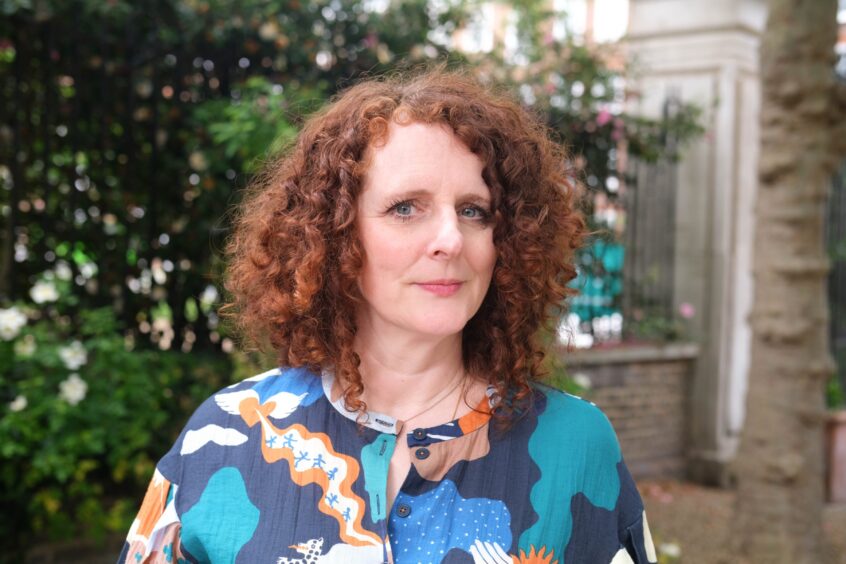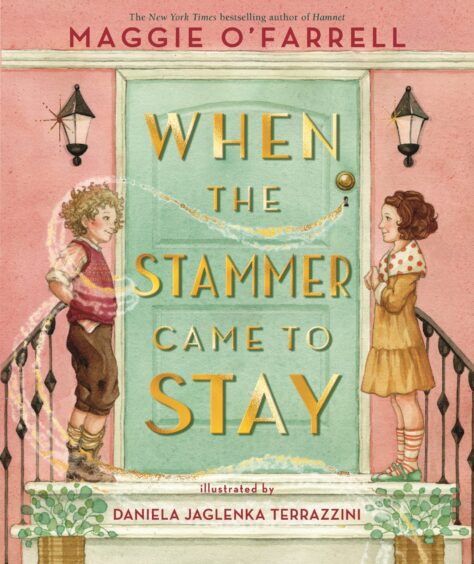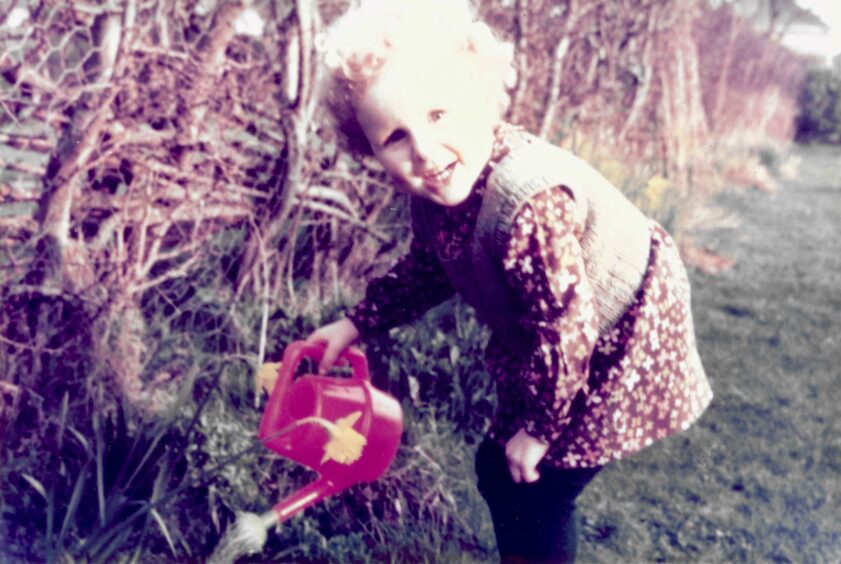It was a moment of abject terror that left multi-award-winning author Maggie O’Farrell in a cold sweat. Live on Radio 4 Woman’s Hour, mid-chat with host Jenni Murray, Maggie was struck mute.
“I was on live radio, and I got into a terrible moment when I couldn’t speak. It was really frightening. Jenni Murray looked at me over her half-moon spectacles, and I thought, ‘I can’t go on like this.’”
At age 40 she decided to have therapy for a stammer she’d had since childhood. It changed her life. And although she is not entirely free of the condition, the author of Hamnet – to be released as a movie next year produced by Steven Spielberg and starring Paul Mescal and Jessie Buckley – has it under control.
So much so that it did little to impact on her fruitful working relationship with the movie’s director Chloé Zhao or the stars on set. And there’s no hint of a stammer in our chat, all of which, it turns out, is telling.
Speaking from the Edinburgh home she shares with her novelist husband Will Sutcliffe and their three children, she smiled: “The filming finished about a month ago and it is looking beautiful. I co-wrote the script with the director Chloé Zhao, and I was on set quite a lot. The cast are absolutely brilliant. They’ve done a great job. I have met them all and I am very excited to see the finished product next year.”
But she revealed: “There is still a stammer. It comes back sometimes. You can never say I used to be a stammerer.”
Maggie, 52, who met Will, 53, when they were students at the University of Cambridge, explained: “Generally, if I stammer with someone, something is telling me something is just not right. My stammer has a very good instinct for good people and not so good people. When Will and I were first living together, and I was on the phone to someone, he said it was only at that point he believed I had a stammer because he had never heard it before.”
Hamnet, a fictional account of William Shakespeare’s son, won the 25th Women’s Prize for Fiction in 2020, and in the same year the National Book Critics Circle Awards; now the author heads in a different direction and weaves her childhood experience into her new children’s book, When The Stammer Came to Stay.
With striking illustrations by Daniela Jaglenka Terrazzini, it tells the story of two young sisters Min and Bea who share a room but could not be more different. Bea is a tidy bookworm, while Min is a chaotic chatterbox. They manage their differences with a literal line that divides their shared space. But one day the unthinkable happens. Mid-sentence, much like her maker, Min finds she cannot speak, and worse still, she senses a presence – a dybbuck(a spirit from Jewish folklore) – on her shoulder and stealing her words…
Maggie – whose novel The Marriage Portrait was shortlisted for the 2023 Women’s Prize – revealed: “I can remember, at about age seven, suddenly becoming aware of my stammer and I was surprised when someone at school made fun of it. I realised that other people could hear it, and it wasn’t something that was just inside my head.”
Maggie, who spent her teens in North Berwick, East Lothian, where she attended its high school, explained: “As a teenager the way I dealt with it was to just swallow it. It morphed into an absolute blockage. English was my favourite subject. I remember being in class, reading Shakespeare and the teacher asking who would like to read Lady Macbeth. I was desperate to do it but couldn’t.
“The stammer is the thing that has defined my life more than anything. It has defined what jobs I can and can’t do, who I am friends with, whether I am able to make phone calls.”
The radio silence episode was the catalyst for action. Maggie, whose children are now 21, 15, and 12, said: “I decided around 12 years ago that I needed to have speech therapy. I was a bit desperate. I had had it for so long and there is very little in life you can do professionally that doesn’t involve speaking.
“I thought it would be complicated, but it wasn’t. Within a couple of weeks, I had an appointment with a speech therapist while my tiny daughter was asleep in a buggy. The therapist was brilliant. She talked to me about my stammer and asked me to keep a stammering diary.”
Through the diary, Maggie was able to share an uncomfortable exchange. “I had to go into a pharmacy to pick up a prescription,” she recalled. “The woman there asked me what my name was, but I couldn’t say it. She laughed and said, ‘don’t you know your own name?’ It was such an awful moment.”
The therapist advised that in similar situations she should declare her stammer and make no apology for it. Maggie said: “As a teenager your instinct is to hide it, but why should I? It is who I am, and if others have a problem with my stammer, it’s theirs, it’s not mine.”
Maggie first addressed the issue in her 2016 novel This Must Be The Place but it was not the main focus. Neither had she intended to make it so in her new children’s book. Then she said: “In the novel there’s a little boy who stammers and he is helped by his linguist stepfather, but only very briefly.
This time, she said: “I knew I wanted to write about two very different young sisters who share a room and that the line down the room at the book’s start would be blurred both metaphorically and literally at the end. The stammer was a separate thing, and I didn’t think it was the main thing, but it came to the fore.
“And I wanted everyone in the book to have their own dybbuck. My husband is Jewish, and my children are half Jewish. In folklore, dybbucks [wandering spirits] are very scary, but I wanted them to feel like companions. In the book they are a little sad, but they cheer up when they are being acknowledged and taken care of.”
Does she wish that she’d had a book like her own in childhood? “It would have helped a lot. Maybe you end up writing the books you yourself would like to read. But it never occurred to me or my parents to have speech therapy, you just hoped it went away, or pretended it wasn’t there.
“I wanted to write this book because we all struggle with something, everybody has a ‘thing’ although some are more obvious than others. And these ‘things’ are not always bad. Any child who stammers in any conversation is automatically editing themselves in their head.
“If in the conversation you can see a problem coming up, like rocks in the rapids of a river, you are thinking of a way to get round it. You become very adept at grammar and semantics at a young age. My stammer has given me a very strong sensitivity to language and grammar. I don’t think I would have been a writer unless I was a stammerer first. The main revelation for me is that it doesn’t matter if you stammer, that is part of who you are.”
Never too far from tragedy
Hamnet, inspired by the death at age 11 of Shakespeare’s only son, was published during the lockdown of March 2020.
At the time Northern Ireland-born Maggie O’Farrell told how her parents came close to suffering similar tragedy when she almost died in childhood after contracting encephalitis – an inflammation of the brain.
Maggie is, it seems, no stranger to lucky escapes. She survived separate encounters with a murderer and a machete-wielding robber, and a haemorrhage in childbirth. And there were more close encounters with death as her oldest child, her now 21-year-old son, contracted potentially lethal meningitis, and when her youngest daughter, now 12, came close to drowning, which she detailed in her 2017 memoir, I Am, I Am, I Am – longlisted for the Wellcome Book Prize.
More recently, in 2002, Maggie found herself back in A&E after suffering Covid-19 and symptoms that mirrored her childhood illness. Although doctors feared stroke, a neurologist finally confirmed Covid appeared to have “reactivated the brain inflammation”. It took several months before she was able to hold a pencil or type. She said: “I’m now working on a novel. It’s going to be the longest book I’ve ever written…”
When The Stammer Came To Stay, by Maggie O’Farrell, is published by Walker Books.

Enjoy the convenience of having The Sunday Post delivered as a digital ePaper straight to your smartphone, tablet or computer.
Subscribe for only £5.49 a month and enjoy all the benefits of the printed paper as a digital replica.
This post was originally published on here


 © Richard Young/Shutterstock
© Richard Young/Shutterstock © Sophie Davidson
© Sophie Davidson
 © Supplied
© Supplied




